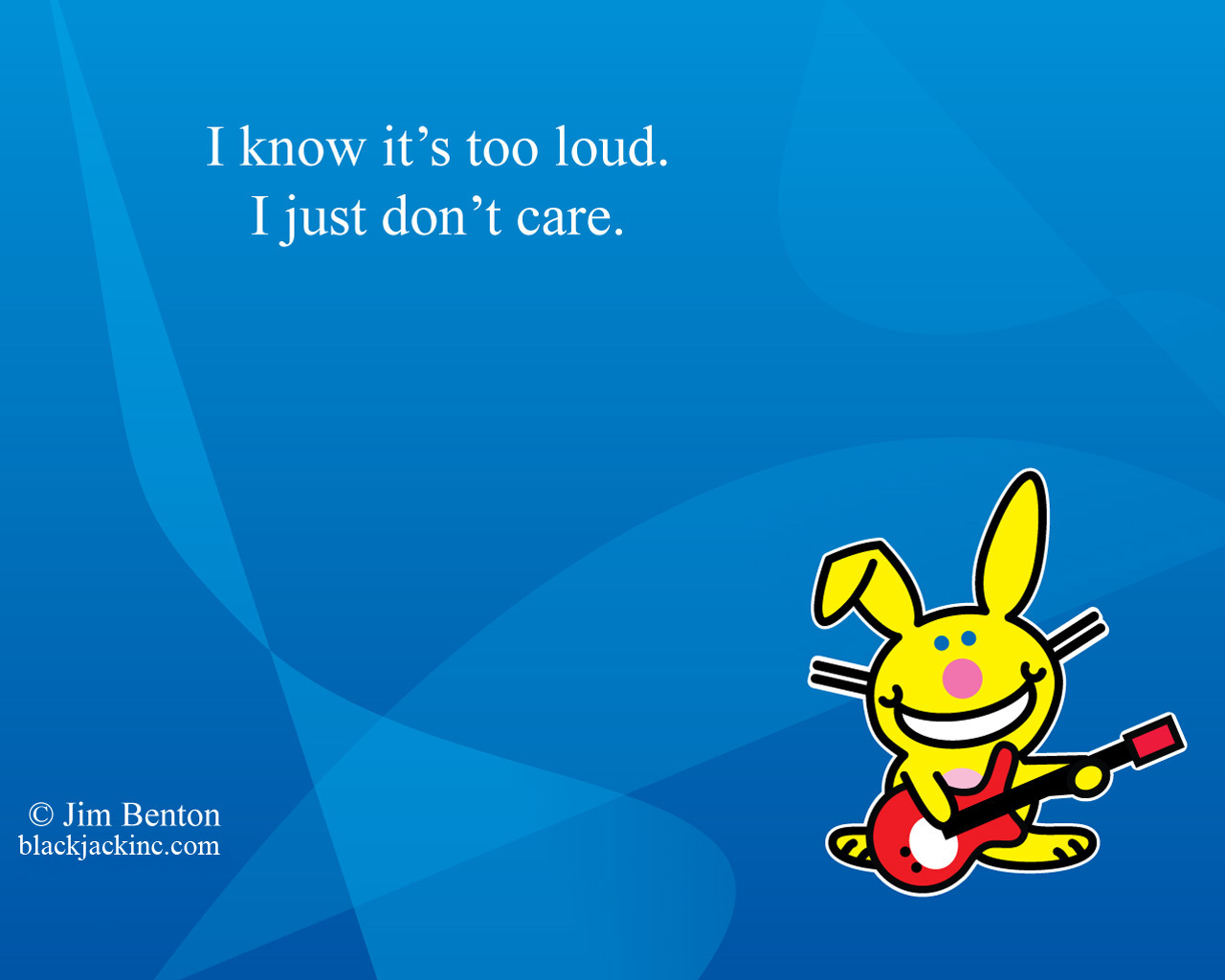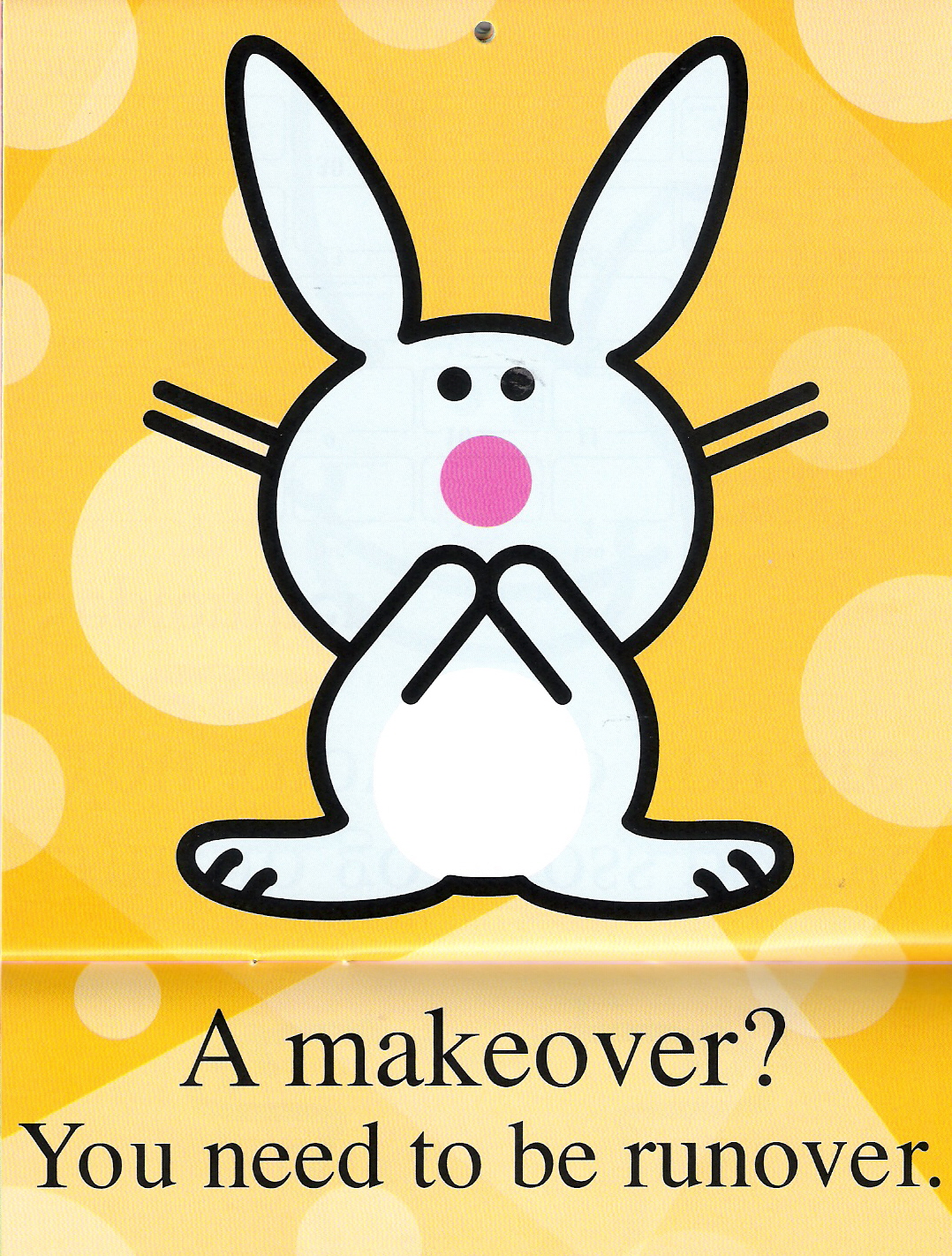Uncovering The Rise Of Happy Bunny: A Nostalgic Journey
Happy Bunny has captured the hearts of fans worldwide, but when was Happy Bunny popular? This beloved character has a rich history that dates back several decades. From its humble beginnings to becoming a cultural phenomenon, Happy Bunny has left an indelible mark on pop culture. Dive into this article to explore the timeline of Happy Bunny's rise to fame and understand the reasons behind its enduring popularity.
Understanding the origins and peak popularity of Happy Bunny can offer valuable insights into how certain cultural icons become timeless. The character's journey is a fascinating tale of creativity, innovation, and connection with audiences across generations. As we delve deeper into this story, you'll discover key milestones that shaped Happy Bunny's legacy.
Through this article, we aim to provide a comprehensive look at when Happy Bunny was popular, the factors contributing to its success, and its lasting impact on popular culture. Whether you're a long-time fan or new to the world of Happy Bunny, there's something here for everyone to enjoy and appreciate.
Read also:Exploring The Allure Of Brandi Passante A Journey Through Her Iconic Pics
Table of Contents
- When Was Happy Bunny Popular?
- Exploring Happy Bunny's Origins
- What Made Happy Bunny Stand Out?
- Why Did Happy Bunny Become Popular?
- Happy Bunny's Golden Era
- How Happy Bunny Influenced Pop Culture
- When Was Happy Bunny Popular Among Kids?
- Happy Bunny in the Digital Age
- How Long Was Happy Bunny Popular?
- Final Thoughts
When Was Happy Bunny Popular?
Happy Bunny's popularity surged during the late 1980s and early 1990s, a period marked by its widespread presence in children's media and merchandise. This era saw Happy Bunny become a household name, captivating young audiences with its cheerful demeanor and engaging storylines. The character's appeal extended beyond entertainment, as it became synonymous with positivity and joy.
Exploring Happy Bunny's Origins
The creation of Happy Bunny dates back to the mid-1980s, when a group of talented animators and writers sought to develop a character that would resonate with children and families alike. Drawing inspiration from classic cartoon characters, Happy Bunny was designed to embody innocence, fun, and adventure. Its debut on television quickly garnered attention, setting the stage for its future success.
What Made Happy Bunny Stand Out?
Several factors contributed to Happy Bunny's distinctiveness in the crowded world of children's entertainment. Its vibrant animation style, catchy theme songs, and relatable storylines helped differentiate it from competitors. Moreover, Happy Bunny's emphasis on values such as kindness, friendship, and teamwork made it a favorite among parents who wanted educational content for their children.
Why Did Happy Bunny Become Popular?
The popularity of Happy Bunny can be attributed to its ability to connect with its target audience on an emotional level. By addressing themes relevant to children's lives, the character fostered a sense of companionship and trust. Additionally, Happy Bunny's presence in various media formats, including television shows, books, and toys, ensured its visibility and accessibility to a broad audience.
Happy Bunny's Golden Era
The peak of Happy Bunny's popularity occurred during the early 1990s, a time when it dominated children's entertainment. This period saw the release of numerous Happy Bunny specials, movies, and merchandise, further cementing its status as a cultural icon. The character's widespread appeal during this era remains a testament to its enduring charm and influence.
How Happy Bunny Influenced Pop Culture
Happy Bunny's impact on pop culture extends beyond its entertainment value. It inspired a generation of creators and artists who drew inspiration from its unique style and messaging. The character's influence can still be seen in modern children's media, where themes of positivity and inclusivity continue to thrive.
Read also:Exploring Webmaxhdcom Your Ultimate Guide To Streaming Excellence
When Was Happy Bunny Popular Among Kids?
Happy Bunny's popularity among kids reached its zenith during the early 1990s, when it became a staple in children's programming. This period saw the character resonate deeply with young audiences, who eagerly awaited each new episode and eagerly collected Happy Bunny merchandise. Its ability to engage and entertain children made it an indispensable part of their childhood experiences.
Happy Bunny in the Digital Age
As the world transitioned into the digital age, Happy Bunny adapted to new platforms and technologies to maintain its relevance. The character's presence on streaming services, social media, and interactive apps ensured its continued popularity among younger generations. By embracing digital innovation, Happy Bunny remained a beloved figure in the ever-evolving landscape of children's entertainment.
How Long Was Happy Bunny Popular?
Happy Bunny's popularity spanned several decades, with its initial rise occurring in the 1980s and continuing into the 2000s. Although its peak prominence occurred during the early 1990s, the character's legacy persists today, as new generations discover and appreciate its timeless charm. This enduring popularity underscores the character's ability to transcend time and remain relevant.
Final Thoughts
Happy Bunny's journey from a fledgling character to a cultural phenomenon is a testament to the power of creativity and connection. By addressing the question of when was Happy Bunny popular, we gain a deeper understanding of the factors that contributed to its success. As we reflect on its impact, it becomes clear that Happy Bunny's legacy will continue to inspire and delight audiences for years to come.
In conclusion, Happy Bunny's enduring popularity is a result of its ability to resonate with audiences across generations. Its focus on positivity, inclusivity, and entertainment has made it a beloved figure in the world of children's media. As we celebrate its achievements, we also acknowledge the lasting influence it has had on popular culture and the countless fans who cherish its memory.
Bonus: Fun Facts About Happy Bunny
- Happy Bunny was originally conceptualized as a mascot for a children's toy line.
- The character's signature theme song was written by a renowned composer known for his work in children's music.
- Happy Bunny has appeared in over 50 television episodes and several feature-length films.
- Its merchandise has sold millions of units worldwide, making it one of the most successful children's brands of its time.
Article Recommendations


